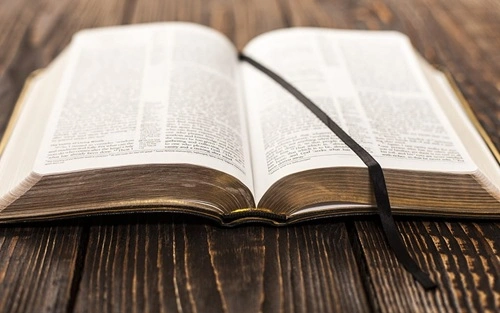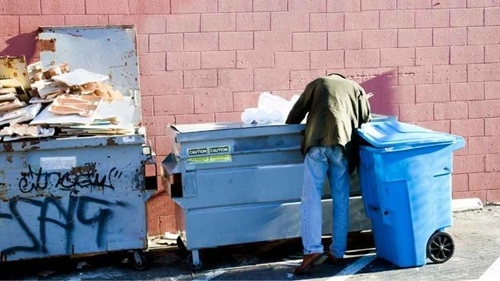Burning a Bible is one of the most emotionally charged and controversial acts a person can commit. While it’s deeply offensive to many, the question from a legal perspective is clear: Is it illegal to burn a Bible in the United States?
The short answer is no, it’s not illegal under U.S. law, but there are important exceptions. Let’s explore what the law actually says — and the risks involved.

The First Amendment: Protecting Free Speech and Expression
Under the First Amendment to the U.S. Constitution, every citizen has the right to free speech and expression — including symbolic acts that others may find offensive or disrespectful.
This protection has been upheld by the U.S. Supreme Court in multiple landmark cases. One of the most relevant is Texas v. Johnson (1989), where the Court ruled that burning the American flag — an act that offends many — is protected political expression under the First Amendment.
The same legal principle applies to burning religious texts, including the Bible, Quran, or Torah. The act may be provocative or offensive, but as long as it’s done privately and peacefully, without threats, violence, or property damage, it is constitutionally protected speech.
When Burning a Bible Can Become Illegal
Although the act itself is protected, how and where you do it can make it illegal. Here are a few situations where burning a Bible could violate the law:
1. Violation of Fire or Environmental Laws
Open burning of any object — including paper or books — may be restricted by local fire codes or environmental regulations.
- Many cities and states prohibit open fires without a permit.
- If the fire produces toxic smoke or occurs during a burn ban, you can face fines or misdemeanor charges.
So while the act of protest is legal, the method of burning could lead to citations under local ordinances.
2. Public Safety or Disorderly Conduct
If burning the Bible is done in a public place and causes a riot, panic, or physical confrontation, it may be treated as disorderly conduct or incitement to violence.
Police may intervene if they believe the act could endanger public safety.
3. Property or Hate Crime Issues
If the Bible doesn’t belong to you — for example, if it’s taken from a church, library, or another person — burning it would constitute theft, vandalism, or destruction of property.
Additionally, if you burn a Bible to intimidate or target a religious group, prosecutors could charge it as a hate crime under federal or state law.
The key distinction is intent — burning your own Bible as expression is legal; burning someone else’s Bible to threaten or harass is not.
Legal Summary
✅ Legal:
- Burning your own Bible as an act of personal expression or protest.
- Doing so privately, in compliance with local fire and safety regulations.
❌ Illegal:
- Burning someone else’s property (vandalism/theft).
- Burning it in a public area where it could incite violence or panic.
- Violating open burning or air quality laws.
- Using the act to intimidate or harass others based on religion (hate crime).
Ethical and Social Considerations
Even though the Constitution protects your right to burn a Bible, that doesn’t mean it’s socially acceptable or without consequence.
Such an act can:
- Deeply offend religious communities.
- Damage reputations, especially if posted on social media.
- Lead to public backlash or loss of employment opportunities.
In short: it may be legal, but it’s rarely wise unless your purpose is genuine expression rather than provocation.
FAQs About Burning a Bible
Q. Is burning a Bible protected by the First Amendment?
Yes. Burning a Bible is a form of symbolic speech and is generally protected under the First Amendment, as long as it doesn’t violate other laws.
Q. Can I be arrested for burning a Bible?
Not for the act itself, but you could be arrested if it’s done illegally — such as during a burn ban, on someone else’s property, or in a way that causes public danger.
Q. Is burning a Bible considered a hate crime?
Only if it’s done to intimidate, threaten, or target a religious group. Burning your own Bible for personal reasons or protest is not a hate crime.
Q. Can I burn a Bible in public?
Technically yes, but it’s risky. Public Bible burning could lead to disorderly conduct charges if it causes unrest or violates local fire ordinances.
Q. What’s the safest way to dispose of a Bible?
If your intention is not protest but disposal, most faith communities recommend burying, donating, or recycling the Bible respectfully rather than burning it.
Conclusion
Legally speaking, burning a Bible is not a crime in the United States — it’s an act protected by the First Amendment’s guarantee of free speech. However, context matters. Doing it safely, on private property, and for expressive—not malicious—reasons keeps it within legal limits.
Just remember: while the law protects your right to offend, it doesn’t protect you from the social or moral consequences that may follow.

